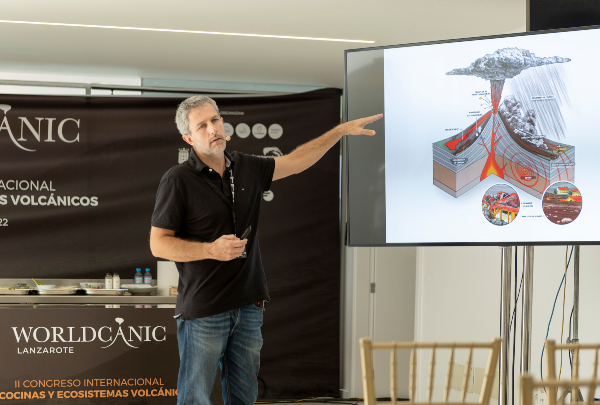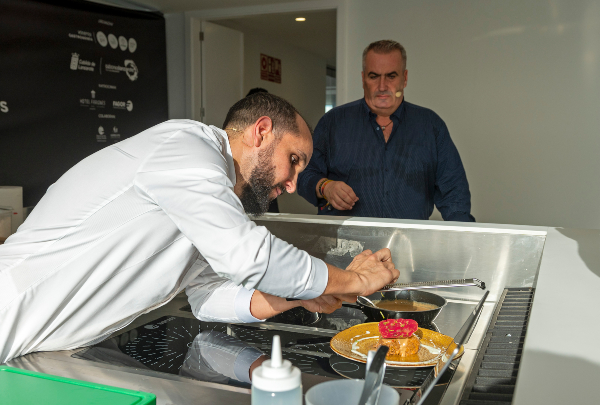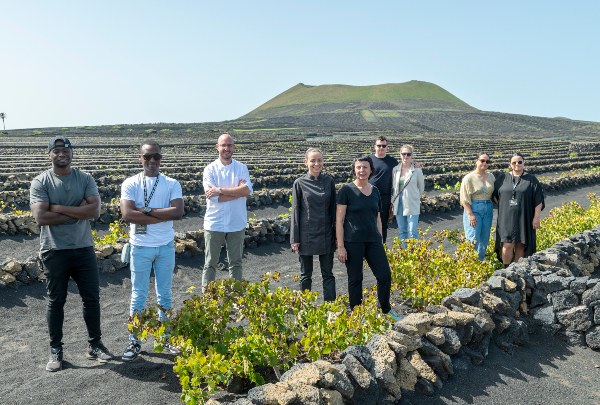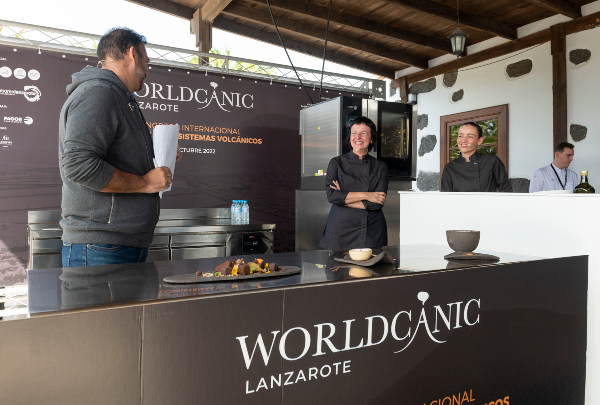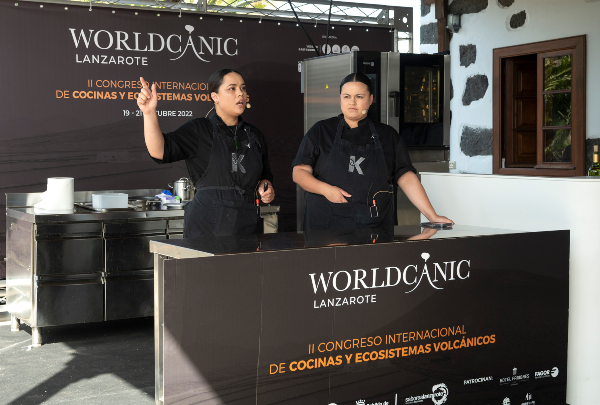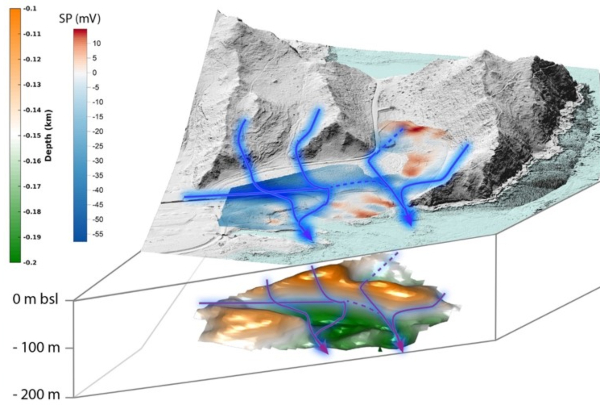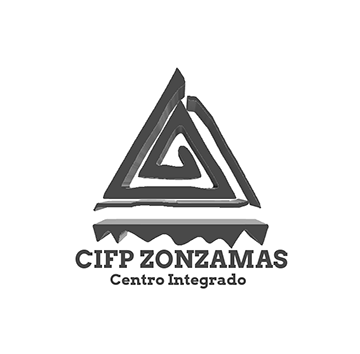News
“Bring back the spoon”

The manager of the Vegacosta Eco-estate (Tinajo), Toño Morales; a farmer ("only part-time"), José Domingo Rodríguez, and a journalist with a farming past, Salvador García-Arbós, describe the benefits of legumes grown in volcanic soil, and call for public appreciation of these foodstuffs.
Two farmers and a journalist with a farming past discussed the current status of legumes on the island at Worldcanic, and also their "uncertain" future, because "back in the day the emphasis was on tourism here. I wouldn't advise my children to get into agriculture now". The benefits of volcanic soil for crops, their feasibility considering new trends in consumption (vegetarianism) and the lack of seeds were some of the other issues featured in a talk that roused the curiosity of the auditorium.
The participants were the manager of the Vegacosta Eco-estate (Tinajo), Toño Morales; a farmer ("only part-time"), José Domingo Rodríguez, and a journalist with a farming past, Salvador García-Arbós. The entire auditorium got involved in the end. The topic was most interesting. Morales began by touching on how crops were brought to the island along with the conquest of the Canaries, how they developed for local consumption, and how, amid the explosions, "we became the Canary Islands' granary".
“Nowadays", he went on, "sweetcorn and our grain are undergoing a revolution, but it doesn't reach the restaurants. "Potaje" stews and grain recipes have disappeared. It's one of the issues pending. It's fine to bring in flavours and experiences from other places, but the spoon has to be a feature of our restaurants, because that's what the visitor wants: to feel the territory. It happened with "papa" potatoes. It has to happen with grain", Morales demanded.
Before continuing with their demands, the three went into the benefits of volcanic soil for lentils and "all kinds of crops" –Rodríguez-. “Volcanic ash doesn't bring any taste with it, it protects the land against desertification and protects roots, creating an incredible, greasier product". And so, the Catalan journalist went on, "volcanic soil leads to perfect growth for legumes".
It was and is a fact that volcanic soil helps out, and that lentils and legumes in Lanzarote are star products, but production has fallen due to a lack of seeds and vocation, and a surfeit of governmental complications for certification ("It ought to be easier to grow crops"), and what is needed is greater output. There is also a need for marketing. “We didn't know how to sell sweetcorn, which was used along with chocolate, and still is. We had Corn Flakes, but we didn't sell them”, said Morales, who runs a gigantic paradisiacal project combining agriculture, gastronomy and tourism.
The positive note eventually returned, with a call for the island's caterers to put more spoon recipes on their restaurant menus, "because legumes are the future. They can be grown profitably in rotation, and the future of gastronomy is turning vegetarian and vegan. So there's a future for legumes", they claimed.

